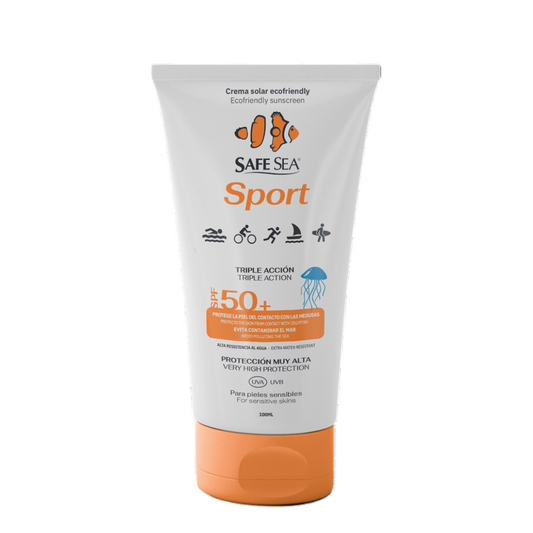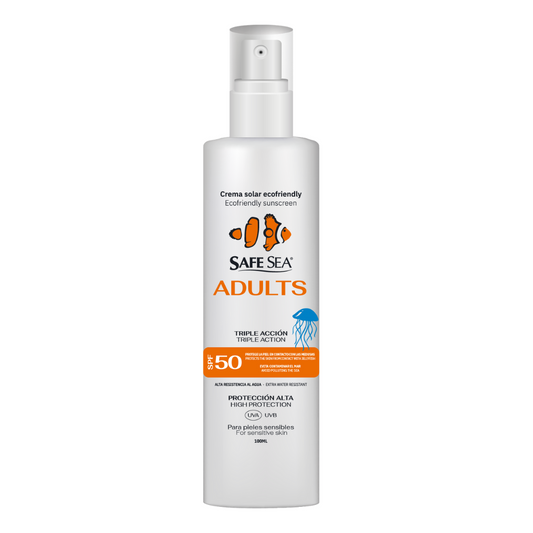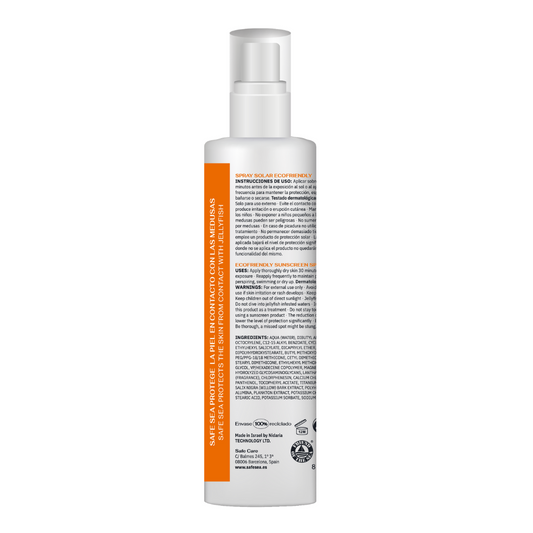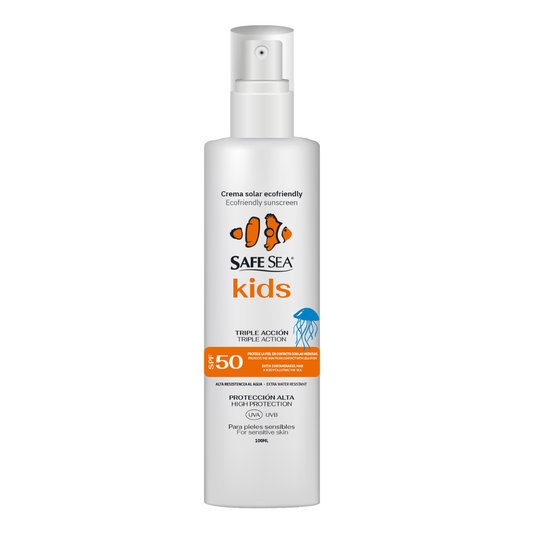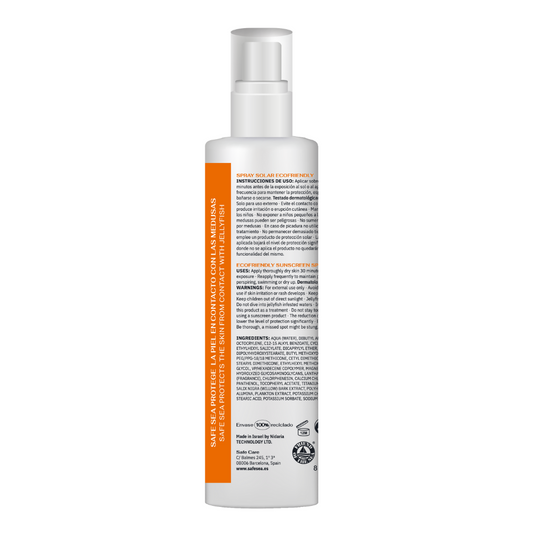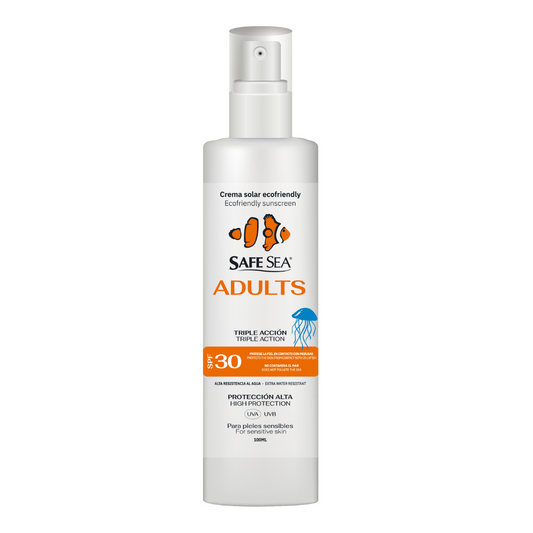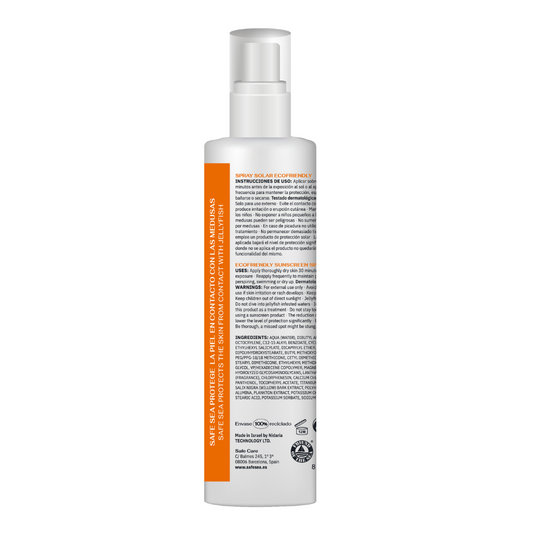Vinegar for jellyfish sting? Be cautious.
You're at the beach, you get into the water so calmly, and suddenly.... Wham! A sharp sting, like a shock. You run out of the sea and everyone around you looks at you with a "it happened to me last summer" look on their faces. Yes, you've been stung by a jellyfish. And among the most frequently heard remedies is the usual one: "put vinegar on it!
But does vinegar really work for jellyfish stings? Is it a legend or is there some truth behind it?
In this article we are going to solve all your doubts in a clear way, and explain everything clearly, based on what the experts say.
The classic: What happens when you get stung by a jellyfish?
A jellyfish sting is not a bite or a sting like that of an insect. Jellyfish have thousands of stinging cells (the famous nematocysts) which, on contact with the skin, inject toxins inject toxins.
The result is a mixture of burning, pain, redness, and sometimes small welts or blisters. In most cases, it is not serious, but it is annoying. Very much so.
And that's when vinegar appears, the star trick of grandmothers, veteran lifeguards and well-meaning tourists.
But beware: it's not always a good idea!
Is it advisable to use vinegar for jellyfish sting?
The quick answer: It depends on the species of jellyfish that touched you.
-
In some cases, vinegar helps to neutralize neutralize the nematocysts that have not yet fired, preventing them from releasingpreventing them from releasing more toxins.
-
But in other species, vinegar can cause just the opposite cause just the oppositethe nematocysts to become even more active.
And what jellyfish do we have in the Mediterranean?
This is where the practical part comes in: our beaches do not abound with jellyfish for which vinegar works well.
The most common is Pelagia noctiluca (yes, that transparent one with pink tentacles), which does not does not react well to vinegar. On the contrary, it can cause more toxins to be released.
That is: if you don't know exactly which species has stung you (and let's be honest, no one does at the time), the best thing to do is to avoid vinegar.
So... what do I do if I get stung by a jellyfish?
Here are the steps recommended by experts (not by the brother-in-law who always carries vinegar in the beach cooler):
-
Get out of the water immediately. Avoid moving too much so that the toxin does not spread.
-
Do not rub the area. Neither with sand, nor with a towel, nor with fresh water.
-
Rinse with sea water. Yes, salt water. It is the best way to avoid activating more stinging cells.
-
Remove tentacle remains. If they remain, use tweezers or a stiff card. Gloves if you have them.
-
Apply moderate heat. Immersing the affected area in water between 40-45 °C for 20 minutes helps to neutralize the poison.
-
Analgesics if necessary. If the pain persists, you can take an anti-inflammatory (always consult a professional).
And I repeat in case it has not been clear: no vinegar, unless you know the species and know that it is suitable..
The secret is in prevention (yes, you knew that).
Here comes the part we all ignore until we get the itch: prevention is easier than cure.
And at this point we want to talk about something that can make the difference between a perfect day at the beach and a visit to the pharmacy with a face of few friends.
Somos Solar Jellyfish: sun protection + defense against jellyfish stings
In Solar Jellyfish we have developed a unique sunscreen with a biomimetic formula.
What does "biomimetic formula" mean?
Our formula is inspired by nature itself nature itselfspecifically in the capacity of the clownfish (Amphiprioninae) to coexist among the tentacles of jellyfish and anemones without being stung..
How does it do this? Their skin secretes a special mucous layer that prevents the stinging cells from becoming active on contact.
Following this principle, we have developed a cream with a biomimetic effect: a skin barrier that mimics this natural mechanism.mechanism, so that your skin goes unnoticed by jellyfish..
It is not a repellent. It does not kill or repel jellyfish. It simply interferes with their natural sensorsminimizing the risk of contact or sting.
What else does it offer?
-
It is suitable for children, adults and sensitive skin.
-
Water resistant, for continuous protection during bathing.
-
And of course, dermatologically tested and safe for daily use.
Is it worth it? crunch the numbers!
A traditional sunscreen protects you from the sun. But in waters where jellyfish are becoming more and more frequent, it is not enough not to get sunburned. With We are Solar Jellyfish you get two protections in one productwithout changing your beach routines.
In short...
Vinegar may sound like a magic solution for jellyfish stings, but in most cases it doesn't help, and can even in most cases it does not help, and can even make the situation worse..
The best response is still to be informed, to act calmly... and, above all, prevent.
So, if you are going to the sea this summer and want to avoid a scare, we make it easy for you:
Visit our website and find out how to protect yourself today.
Because the sea is there to be enjoyed, not to run away every time you see a shadow in the water!


